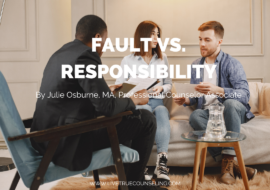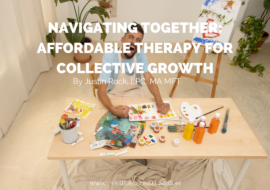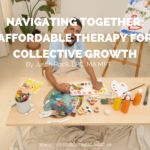Changing Careers in a Pandemic
There are many reasons people decide to change careers: boredom, burnout, having a career that wasn’t the right fit in the first place, the desire to try something new. . . Changing careers is far more acceptable today than it was even 10 years ago. It used to be that a career change on a resumé would prompt a hiring manager to raise an eyebrow, suspicious of the reasons behind the change. Now, career changes are so commonplace that they’re almost expected. One article I found suggested that folks change careers an average of 5-7 times in their working lifetime!
Types of Career Changes
Career changes can come in a few different forms:
- Staying in the same position, but changing industry/field
- Staying in the same industry/field, but changing positions
- Changing both position and industry/field
The first one listed is the easiest type of change to make and requires constructing the least amount of new foundation. The last one listed is the most challenging type of change to make and requires building the largest new foundation. Laying foundation in a career change refers to things like communicating how your skills are transferrable or reaching out to folks to learn more about what would make you a good candidate. It can take time to lay new foundation when looking to change careers.
Career Change During a Pandemic
You may have been thinking about changing careers even before the coronavirus pandemic. Maybe you were feeling overly stressed and burned out in your job. Maybe your industry isn’t as relevant now as it once was and jobs are harder to come by. Maybe you’ve been at your job for a while and just want to explore something new. Maybe you’re ready for a job that doesn’t demand as much of you. And now – with the advent of the pandemic – you may be feeling stuck and discouraged. You were so ready for that change and now. . .well, who knows what the job environment and workforce will look like when the world opens up again? Is it really possible to find a new job during the coronavirus pandemic?
It is – and there are still a lot of places that are hiring. That said, a full job search right now isn’t ideal. Unless you’ve suffered a job loss and need a paycheck, it’s a good idea to put your job search on hold for now. But that doesn’t mean that you need to sit around and wait to take your next steps. In fact, this is the best time to lay the foundation for a career change. Here are some things you can be doing now:
- Dust off your skills or learn new ones. There are so many free or low-cost online courses (many on YouTube) to learn new skills or brush up on skills you haven’t had to use in a while. What are you interested in learning more about? What skills would be helpful in the career you want?
- Think of how your current skills are transferrable. What skills and abilities do you use in your current or most recent career? Which of these skills and abilities will be valued in the career you want? (Hint: These are things you’ll want to focus on in your resumé and cover letter.)
- Demonstrate that you can wear many hats. We know that when the job market does open up again, people will be asked to do more with less. Efficiency will be valued and folks will be asked to go beyond the boundaries of their normal jobs. Think about how you’ve done this in the past and how you might benefit a future employer by wearing many hats in your job.
- Tell everyone you know that you’re looking to change careers. It can be harder to get hired when you’re entering a career for the first time. People hire others who they know and who they like. Build new working relationships. You never know who will know someone who works in the career or industry you’re interested in.
- Do informational interviews. Find out who works in the position you want or who manages that position and set up a video call with them. This is the ideal time to reach out to folks, who may be able to take more time to answer your questions. Work with a career counselor to learn what you should be asking and how to conduct these.
- Help others. Think about others who have helped you along the way in your career. This is a great time to reconnect with them and see what kind of help you might be able to give them during this time. This is a little about networking, but mostly about doing something that helps you feel good.
- Join and participate in professional groups online. Make sure your LinkedIn profile is where it needs to be and connect with hiring managers on LinkedIn. If they post something, comment on it. Show them the kind of employee you would be. Find online discussion groups for professional organizations that you’re interested in and participate in them.
- Take some time and think about the work you really want to be doing now and the companies you want to be working for. If the role you want isn’t in demand right now, is there an adjacent role that is?
- Set up Google Alerts for the companies you want to work for. See how they show up in the news. What are they doing for their workers that is laudable? Could they be doing more? Are they a company you would be proud to work for? Staying aware of what they’re going through and what they’ve been up against can pay off for you. It gives you a place to focus your cover letter and gives you a competitive edge in an interview.
- Be creative. Instead of thinking about jobs within traditional boundaries, think about what companies are going to need when they open up again. Think about how you can fill that need in an imaginative way.
- Stay up to date on the best jobs to enter when changing careers. Keep in mind that many of the careers listed require additional schooling, degrees, or certifications.
- Be patient and focus on what you can control. It may take some time for the company you want to work for to start hiring again – and you can’t control that. Focus instead on the things you do have control over: reigniting professional relationships, forming new professional relationships, and dusting off some of your skills.
How Career Counseling Can Help
Career changes can be tricky – especially if you’re not sure what you want to be doing. When I work with folks who want a new career, I start by exploring with them their reasons for changing careers. I once had a client who was thinking she wanted a career change, when in reality she needed help mitigating the stress in her current job. And some clients know they want to do something else, but don’t quite know what that looks like. A career counselor can help you with low-cost assessments that can point you in the right direction. They can partner with you and explore the results with you in a way that helps you pick out themes that resonate with you to help you decide the next career you want to pursue. A career counselor can also help you figure out what potential jobs are realistic for you. Which require additional schooling and/or certification? Which might require that you start at the bottom of the ladder and take a pay cut while you work your way back up? Which jobs can you apply for now?
Once you decide on a new career, a career counselor can help you lay the foundation for the change. They can work with you on how your skills and strengths transfer to the new career. They can help you learn what makes you a good candidate for the job through informational interviews with others. For instance, a career counselor can help with:
- Who you should be reaching out to
- How to reach out to them within your comfort zone
- What you should be asking them – and not asking them
- How much of their time to ask for
- How often to follow up with them
It’s not ideal to try to find a job or switch careers during a pandemic, but career changes can be a process – and this is a perfect time to get started on yours. Taking steps toward a new future can help with feelings of burnout or a lack of motivation. You can start as small or go as big as you want to right now – either way, there’s no time like the present to get started.
References/Further Reading
http://careers-advice-online.com/career-change-statistics.html
https://www.themuse.com/advice/companies-hiring-during-coronavirus-covid-19
https://money.usnews.com/careers/best-jobs/slideshows/jobs-to-consider-for-a-career-change
Jenny Larson loves her work as a therapist at Live True Counseling and as a Volunteer Counselor at William Temple House. When not seeing clients, she can be found reading psychology books and celebrity memoirs, watching bad (good) 80s movies, and sewing or baking. While self-identified as a cat person, she also has a fondness for dogs and other animals.










Write a Comment